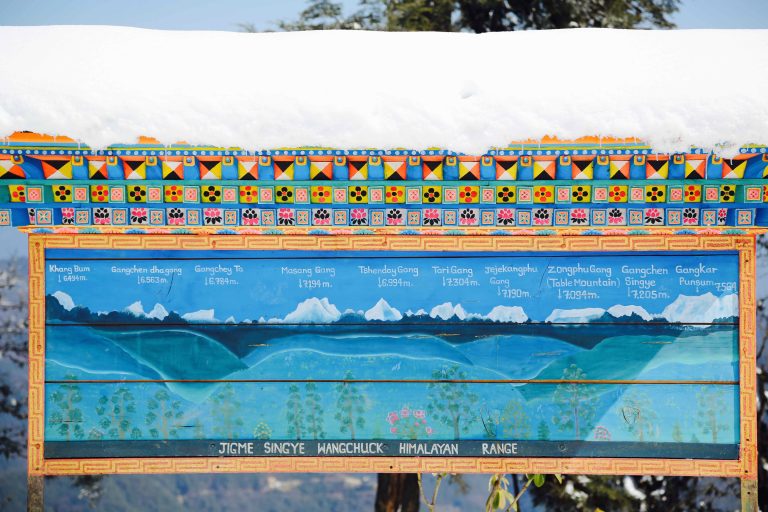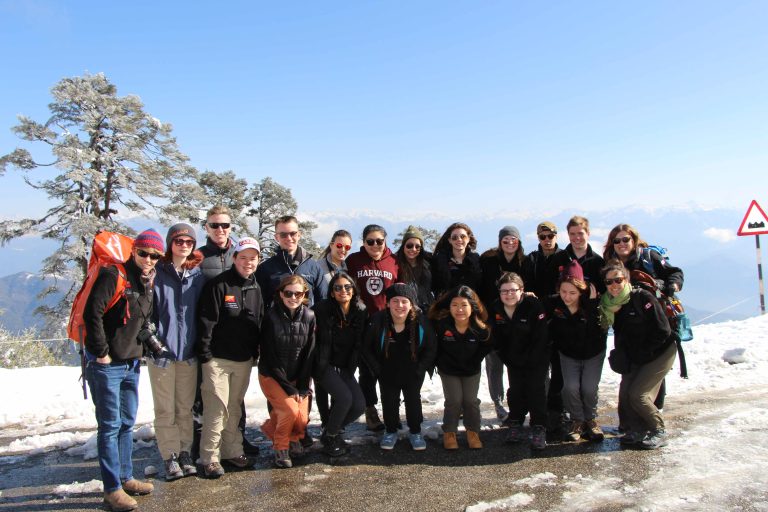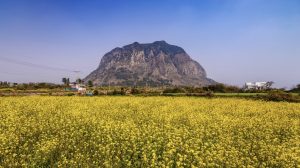The Mountains and the Library – Fostering an Enduring Imagination
- Posted on
- By Ryan Howard
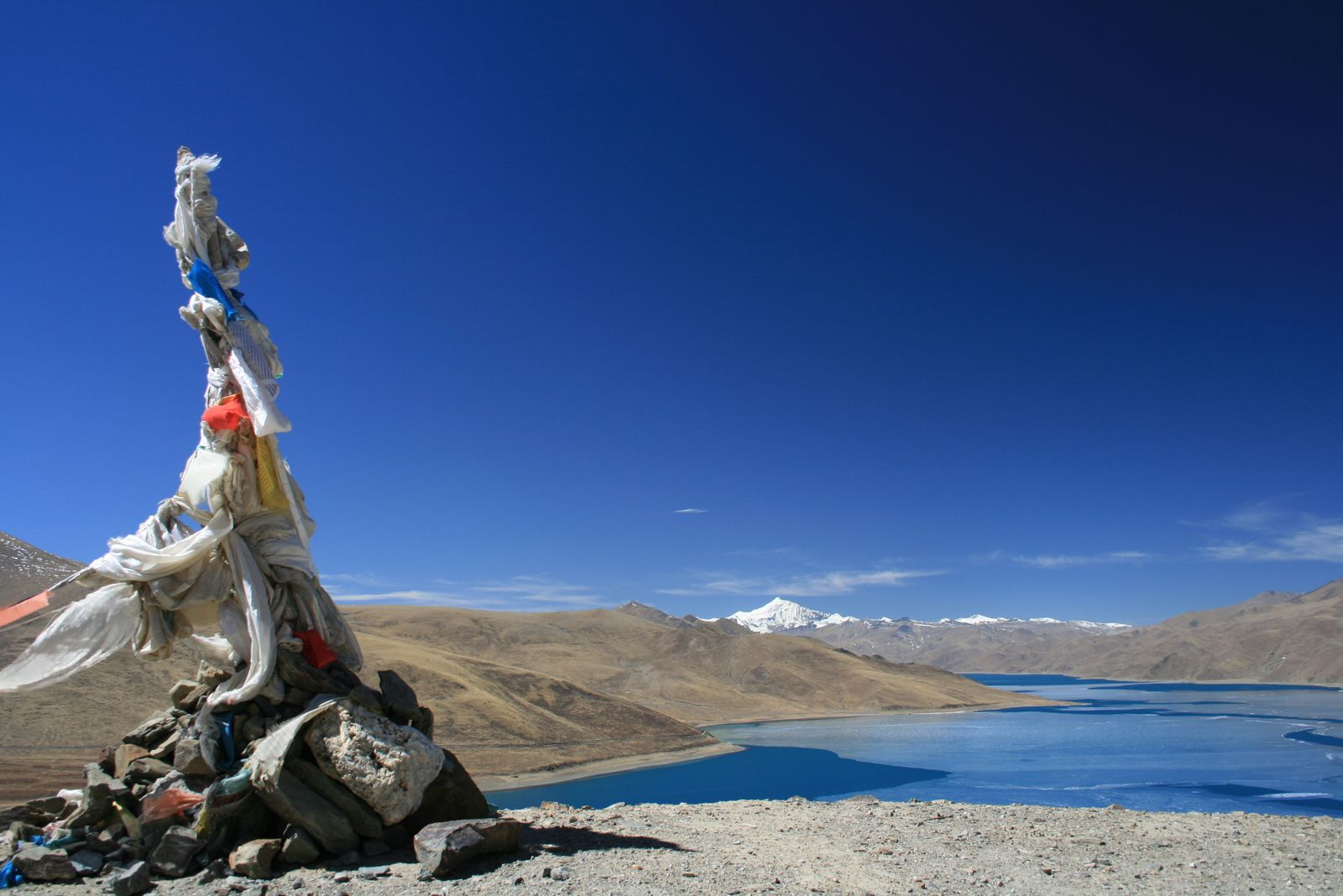
The above photo was taken by Ryan Howard at Yamdrok Lake in Tibet looking towards the mountains shared between Bhutan and Tibet in 2007.
When Bhutan comes up in conversation, the words, “a once in a lifetime journey,” are often not too far behind the initial evaluation of the small Himalayan country’s exact location! It was 15 years ago that I got my first glimpse of The Kingdom of Bhutan. We were on a multi-month trip to China and Tibet travelling through the high Himalayas in search of grand landscapes, Buddhism, and ultimately a need to satisfy the itch to explore a very different part of the world than the one we were so accustomed to.
On a particularly clear and sunny day in Southern Tibet, near the Yamdrok Lake area, south of Lhasa, a stretch of snow-capped mountains reached up from the horizon. Something about that view and the prominence of those mountains at that time in my life held my interest. I later found out that these mountains were shared between Tibet and Bhutan. I can vividly remember that specific view to this day. For whatever reason, that moment has left an indelible impression on my imagination, one that would linger for over a decade. At that time in my life, I probably could not have even placed Bhutan on a map, I am almost certain that not a single peer of mine from my high school graduating class had ever heard of the country!
I consider myself incredibly lucky to have ventured into the Himalayas on several occasions to explore that wonderful and remote part of our planet. Mountains have a way of impressing upon me a sense of awe, grandeur, and permanence in a world where most things feel like they are rapidly changing, threatened, or in flux. I think part of their allure is simply knowing that they are there and will be there overlooking the landscape for a long time.
At the end of March, I returned from my second visit to Bhutan, a statement I could have never foretold 15 years ago at that moment when Bhutan was a complete mystery to me. Spending this time in the mountains has taught me something very important about what exploration means to me personally, and ultimately the value of seeing and feeling different landscapes, learning about different cultures, experiencing personal discomfort, and the importance of the people who help us understand and navigate the place. On this last trip to Bhutan during the school exchange program I had the opportunity to directly reflect on the personal importance of understanding a place from a unique perspective.
One of the schools we have worked with for many years on our student learning exchange between the Bhutanese and Canadian students experienced a fire on their property that sadly burnt both their library and some staff offices earlier in the year. The source of the fire is thought to be electrical in origin, but it was the library and the thousands of books collected by the school since its establishment in 2002 that was the most impactful loss. Reflecting on this one school in the heart of the Himalayas leaves me wondering what they have really lost. The teachers and administrators dutifully engage the 800 plus students each day in the tasks of learning – it is not the quality of their education that worries me, as the teachers and administrators are relentless in their pursuit of achievement. It is the softer side of learning, the side that encourages and facilitates students to pursue their interests, build their own stories of knowledge and understanding, and simply dream about the unfamiliar that they have lost access to.
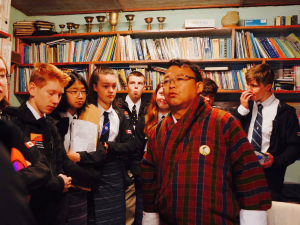
It sticks with me that these students have lost something desperately important to their learning journey, and more importantly the ignition of their imaginations. It is harder now for the students to find joy from being lost for a moment in the aisles pulling books of differing topics randomly from the shelves, they cannot be dragged into an epic adventure and mystery they didn’t know they needed, or they cannot as easily dive into the hyper-focused details of the molecular world. These books hold value far beyond the academic and the factual, they hold stories, photos, maps, and most importantly – possibilities and dreams. It is not lost on me that the internet and the unlimited content available online can fill a large part of the gap from the missing library, but that is something entirely different than the books they lost. The structure, the way the content is arranged, and the feel of the books are lost on the internet. It is very hard to have a favorite internet, or to feel connected to a webpage! In my opinion, the internet is very good at thin-slicing information, giving the reader a lot of very superficial data and opinions quickly which can leave a negative impact on learning and the development of critical thinking, knowledge acquisition, and mastery, but most importantly a missed opportunity to imagine deeply.
While the primary purpose of this blog post is to speak to the loss of the library, it is also a moment to think about where we personally find and digest the information that forms our own worldview, helping us venture down our own personal paths toward understanding the world around us and exciting our imaginations. For me, the loss of these books is not a loss of material objects, but a loss of opportunity for the students at the school. The opportunity to be transported somewhere else, to fall in love with some new idea, to study something in detail, and to imagine a place far beyond their small mountain country that they too may one day visit.
As we continue to bring groups to Bhutan, we have been asked by the school administration to help them build back their collection of books from the ground up. This ask brings with it a tremendous opportunity to help curate a view for the students of what lies beyond their current sight lines from where they sit in Bhutan. For me, it feels like an honoured endeavour and we hope that the students, schools, and families that choose to venture with us to Bhutan in the coming years also see the value in helping restock the school’s library, knowing that they are intentionally helping others ignite their imaginations.
I have unfinished imagination business left to fulfill in Bhutan. There is one high place (Dochula Pass) between Thimphu (the Capital) and Punakha that you must travel over to get to the school that offers the view of the mountains that captured my imagination 15 years ago. It is the view from the other side, looking back into Tibet that has escaped me. I have now travelled over Dochula Pass four times, and the mountains have always been obscured by thick cloud cover. I know the mountains are out there, I have seen other people’s photos from the pass, but my eyes have yet to have the chance to look back on those mountains that ignited my imagination 15 years ago.
